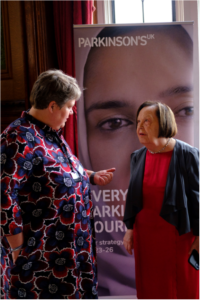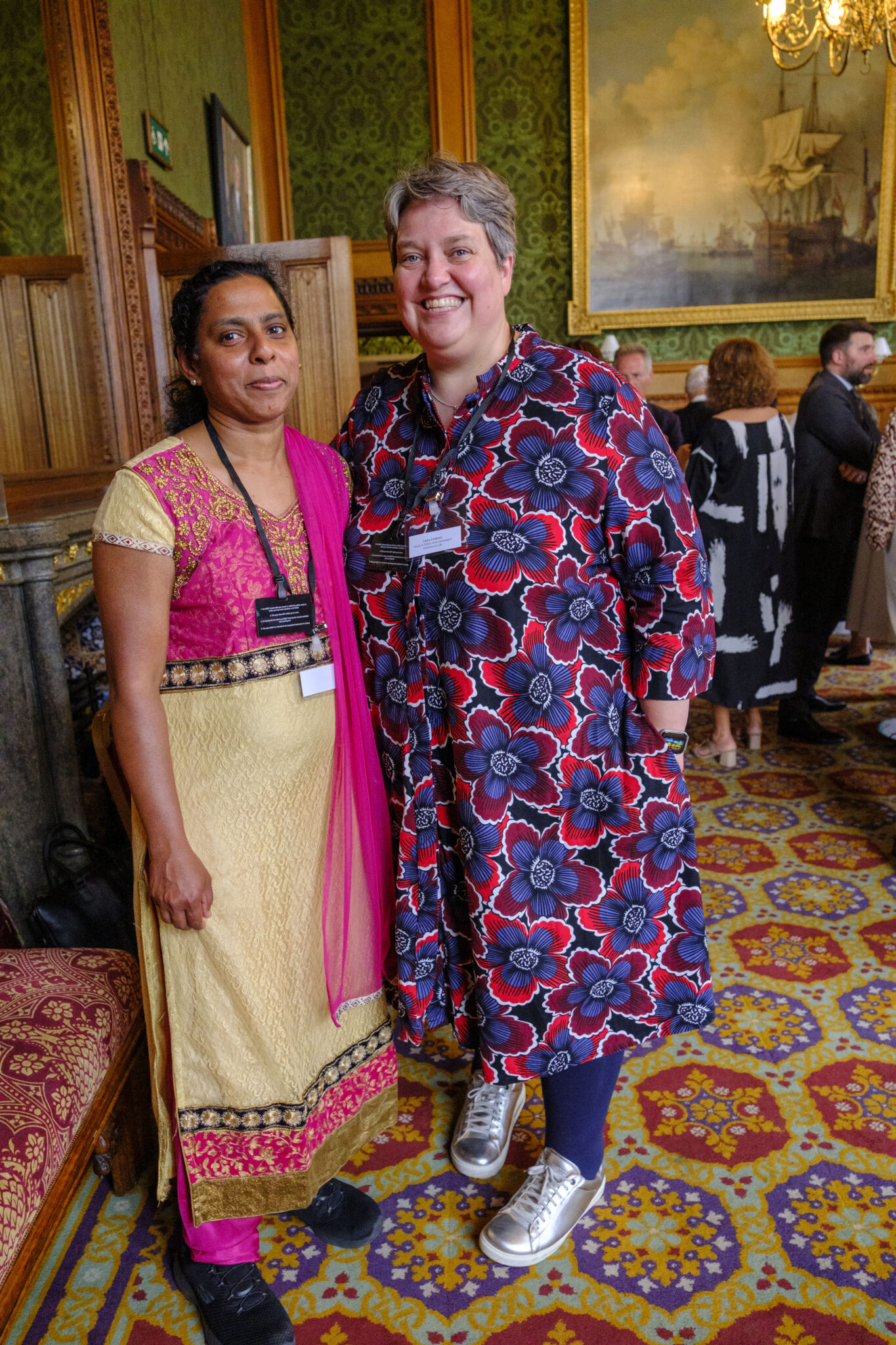An interview with Laura Cockram from Parkinson’s UK on September 19, 2023 by George Ackerman, Ph.D, J.D.

Laura Cockram and Baroness Gale with banner – LordsReception©JessHurd
Please tell me a little about your background.
My first job after university was working for a local council with the police, fire service and probation service to reduce crime and anti-social behaviour. I then moved on to work for a trade union representing government workers to campaign for better terms and conditions and safer workplaces. While I enjoyed this work I missed working directly with communities and so was delighted when I got the job with Parkinson’s UK. I’ve led our policy and campaigning work for around 10 years.
Can you tell me more about your advocacy?
We work with the Parkinson’s community to gather their experiences and then use these with the government to improve health, welfare and transport services. We also work with other neurological charities to get a better deal for the 1 in 6 people who live with a neuro condition in the UK.
What is your passion and how did you get involved in Parkinson’s awareness and hope for a cure?
I’m passionate about supporting people with lived experience of Parkinson’s to speak out and create change.
Before I worked at Parkinson’s UK I already had experience of supporting people to get involved in campaigning and advocacy work. Since starting work here I understand the condition so have found ways to involve people with the condition and care partners in our work.
What type of goals do individuals with Parkinson’s have when working with you?
To create change – whether that’s increasing the number of Parkinson’s healthcare professionals who are operating and supporting people with the condition or improving the financial assistance people with the condition receive.
Most of the time people with the condition want things to improve for those who come after them – while they want change now, they’re pragmatic and understand it can’t always change overnight!
What type of training and how long are the programs?
We bring campaigners together once a month to share their work, provide support and updates. When we launch new campaigns, we provide bespoke training on the campaign and activities. This is usually a day.
What effect can your advocacy have on an individual with Parkinson’s?
It can empower people to demand change and help them to advocate in their healthcare journey. It can also give people confidence, new skills and enable them to meet others and expand their networks.
What would you like to see as a future goal for your advocacy?
I really want us to get more people with Parkinson’s involved, encourage, and empower more people to be an advocate for themselves and also to create real changes that improve life for people with the condition – like more Parkinson’s nurses and access to better treatments that help people to manage their symptoms better.
What events do you participate in?
We organize a national campaigners conference each year.
We brief MPs and other decision makers across the UK on our work regularly and how they can support us.
And throughout the year we work with other charities to campaign for changes.
How does your advocacy also assist the caregivers?
Our advocacy also involves care partners – in fact we regularly hold focus groups to gather their experiences of accessing care and treatments and feed these into our campaigns. But we also welcome care partners to get involved in our campaigns and activities.
How can someone get in touch? What is your website?
Please email campaigns@parkinsons.org.uk or visit https://www.parkinsons.org.uk/get-involved/campaigning-change
How can others also become advocates for awareness?
Read up on the key facts and info (https://www.parkinsons.org.uk/information-and-support), make contact with a charity to find out where you can add the most value and volunteer/share your experience (https://www.parkinsons.org.uk/get-involved/volunteer-parkinsons-uk).
In your opinion what is the key to effective advocacy?
Having a combination of facts, figures, and the real-life experience of people with Parkinson’s is crucial!
If you had one final statement or quote you could leave for the Parkinson’s community, what would it be?
Parkinson’s is a misunderstood condition – it doesn’t just affect the person diagnosed with it. Working together and being outspoken we can change the understanding of the condition and the support, treatment and care people receive!

